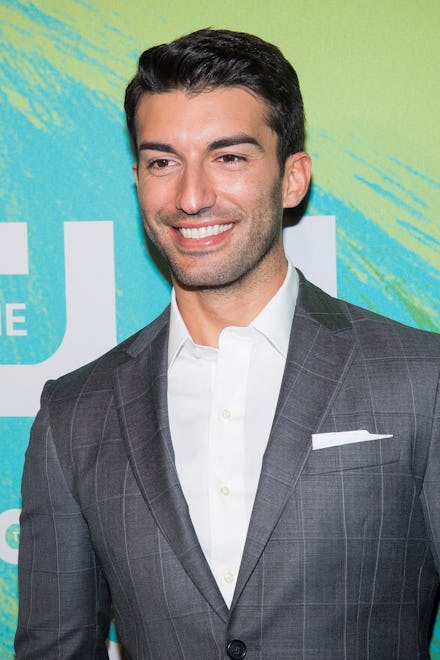'Jane the Virgin' star Justin Baldoni opens up about his fight to end homelessness

When most people think of actor Justin Baldoni, they think of his role as hotelier/playboy Rafael on The CW's Jane the Virgin. But outside of the Villanueva world — which will officially be returning for a season four — Baldoni is a socially engaged citizen, though he does not consider himself political.
"As a Bahá'í, I don't get involved in politics, nor do I offer an opinion," Baldoni tells Mic.
Yet Baldoni does believe community service can and should flourish under the Trump administration. That's why he will be running Skid Row Carnival of Love, a service event for the homeless people of Los Angeles, for the third year in a row. On Saturday, 1,700 volunteers will work to provide the city's homeless population with one day of entertainment, as well as medical, legal and other professional services.
"If there's an event to bring both sides together, it's this," Baldoni says. "It doesn't matter which side you're on politically. Ending homeless[ness] should concern you, whether you care about property values or simply want to help these people.
"It's 2017. Somebody should not be sleeping on the street, getting eaten alive by rats, while I'm in my nice house."
"Look people in the eye"
Baldoni, whose birthday was Tuesday, began going to L.A.'s notorious Skid Row eight or nine years ago to celebrate. He would bring his friends and they would spend the day volunteering for the homeless in lieu of having a traditional birthday party.
"I was sort of getting used to there being homeless people everywhere," he says. "That's sort of a dangerous thing. The second we start to normalize [homelessness], we're part of the problem."
Three years ago, Baldoni and his friends attempted a more formal day of service by organizing the first Skid Row Carnival of Love. Three hundred people came to volunteer for the homeless.
"It was organized chaos," Baldoni says. "There were 800 volunteers and 2,500 people on the street, but you couldn't tell who was homeless and who wasn't. That's the whole point of the carnival. We are one family."
With the L.A. mayor's office involved, the carnival has become more organized. This year, the event will feature emergency relief services, teen activities and resume help.
"The dream is to create a Trojan horse disguised as a party so we can shine a light on a really dark place and bring people together to solve the actual problem," Baldoni says.
When people ask him why they should bother helping people who might be drug addicts, Baldoni says that even if certain homeless people fit unfortunate stereotypes, they're still human.
"It's important to humanize homeless people," he explains. "The second that we give up hope for humans is the second we lose them." Humanizing them involves "looking into their eyes, saying hi, asking them for their name, asking them for their story."
Baldoni understands it's easy to get busy, but insists there's always time for community service if we make the time.
"Where there is love, there's never too much trouble," says Baldoni. "What we're seeing in this current political [climate] is a state of panic on both sides."
Baldoni will be working with the L.A. mayor's office to bring the Carnival of Love model to other cities over the next two years. After all, "homelessness is not just an L.A. problem," he says.
As Mother Jones writer Edwin Rios points out, President Donald Trump has not talked about homelessness much. Still, with his administration targeting the Affordable Care Act and instituting a hiring freeze that could negatively impact veterans, homeless people may be more vulnerable than ever. Our time and our service can make a difference.